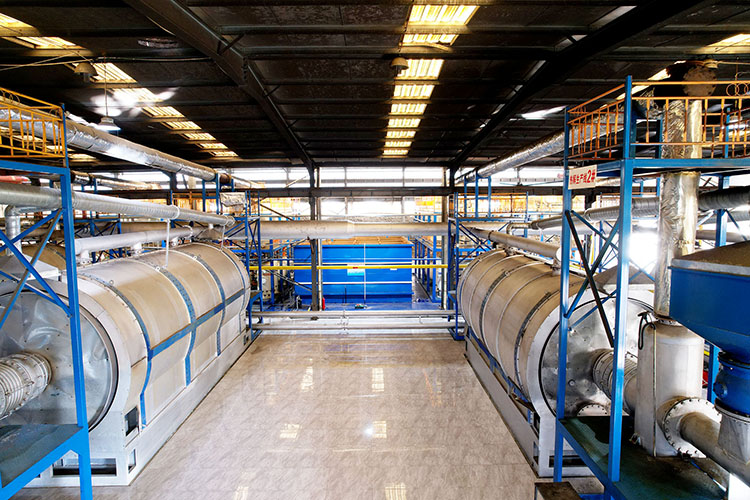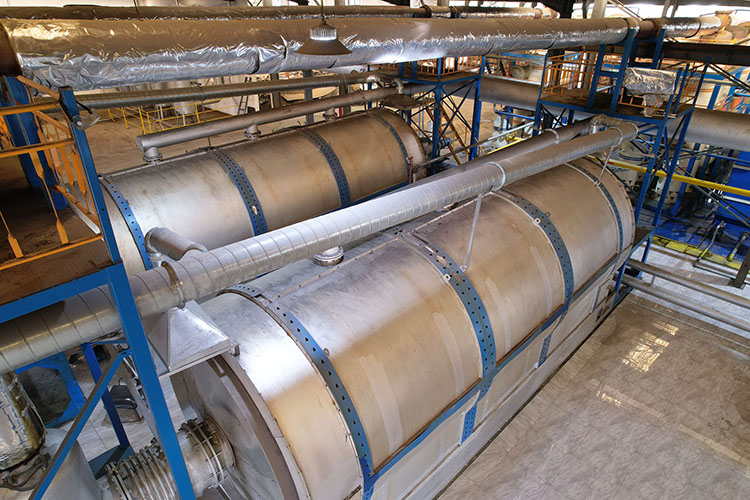With the acceleration of industrialization and the increase in the number of cars, the problem of disposing of waste tires has become increasingly prominent. The traditional disposal methods of waste tires often suffer from environmental pollution problems, such as the release of harmful gases and chemicals from stacking or incineration, which pose a threat to the surrounding environment and human health. Therefore, the development and application of waste tire refining equipment has become an important means of environmental protection and resource utilization.

The core technology of waste tire refining equipment is thermal cracking. This process utilizes the thermal effect under high temperature environment to decompose complex tire materials into simpler compounds, including oil, gas, carbon black, and steel wire. The entire process needs to be carried out in an oxygen deficient or low oxygen environment to prevent the release of gases and pollutants generated by combustion. Generally speaking, the cracking temperature is controlled between 450 ° C and 700 ° C, which can maximize the quality and yield of cracking products.
Firstly, tires need to undergo pre-treatment before entering the refining equipment, such as removing metal parts and other large debris, to prevent equipment damage and improve operational efficiency. The pre treated tires are sent to a cracking reactor, where they are heated and catalyzed to decompose into products such as oil and gas, carbon black, and steel wire. Among them, oil and gas are cooled and condensed to obtain liquid fuel oil and gaseous products, which can be further used in chemical or energy production.
The remaining solid products after cracking mainly include carbon black and steel wire. Carbon black is the main non-metallic component in tires, and it is commonly used in the rubber industry, such as the production of recycled rubber or the application of fillers. Steel wire needs to be recycled through methods such as magnetic separation for reuse or other metal recycling processes. The effective separation and utilization of these solid products not only reduces the cost of waste treatment, but also decreases dependence on natural resources.

A crucial step in the operation of refining equipment is the refining of oil products. The quality of the raw fuel oil obtained from cracking varies and requires further processing and refining, such as removing impurities, adjusting molecular structure, and improving combustion performance. The selection of technology and equipment during the refining process has a significant impact on the quality and market competitiveness of the final product, while also determining the energy efficiency and economy of the refining equipment.
In addition to technical optimization, the design and operation of waste tire refining equipment also directly affect the environmental protection effect. Reasonable equipment design can minimize energy consumption and exhaust emissions, and the use of advanced pollution control technologies can effectively capture and treat emissions. These measures not only comply with environmental regulations, but also enhance the corporate social responsibility image and market competitiveness.
In summary, as an advanced technology for environmental protection and resource utilization, waste tire refining equipment is of great significance in solving the problem of waste tire treatment and promoting circular economy. Through the joint efforts of technological innovation and policy support, the processing capacity and environmental benefits of equipment can be further enhanced, promoting the sustainable utilization and recycling of waste resources worldwide.
Yongle Environmental Protection is mainly engaged in the research and development, production and sales of complete sets of technical equipment for organic solid waste disposal and comprehensive utilization. Production and manufacturing, domestic waste treatment equipment, tire pyrolysis equipment, medical waste disposal equipment, hazardous waste disposal equipment, and achieve efficient and comprehensive utilization of resources through independently developed low-temperature anaerobic pyrolysis equipment technology solutions.
Tags:Cracking and refining process of waste tire refining equipment,waste tire refining equipment,Yongle Group
 Latest news
Latest news


























